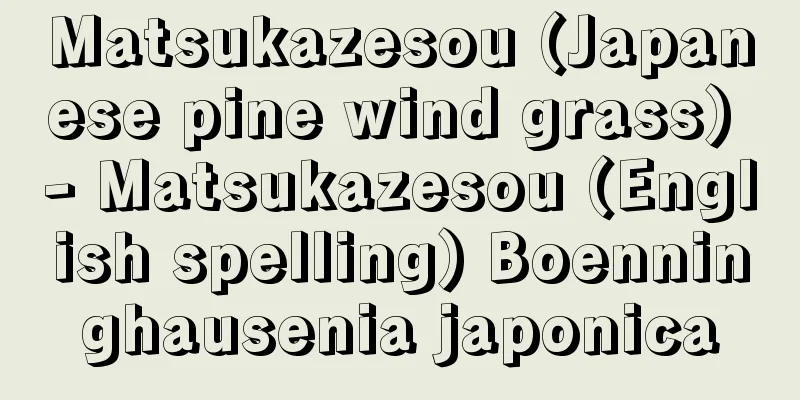Vienna School

|
A school of modern economics. It was formed after World War I by economists mainly from the University of Vienna, such as Mayer, Mises, Hayek, Eucken, and Haberler, and succeeded the Austrian school. It developed a theory of business cycle fluctuations based on the capital theory of Bohème and Bawerk. The Neo-Austrian school. Source: The Selected Edition of the Japanese Language Dictionary About the Selected Edition of the Japanese Language Dictionary Information |
|
〘名〙 近代経済学の学派の一つ。第一次世界大戦後、マイヤー、ミーゼス、ハイエク、オイケン、ハーバラーなど、主としてウィーン大学を中心とする経済学者により形成され、オーストリア学派を継承した。ボエーム、バウェルクの資本理論を出発点として、景気変動論を展開した。新オーストリア学派。
出典 精選版 日本国語大辞典精選版 日本国語大辞典について 情報 |
>>: Vienna Circle (English: Wiener Kreis) German
Recommend
Hetairai (English spelling)
From the ancient Greek word meaning "girlfrie...
Cheiro
...It is said that palmistry was founded by the p...
Joyful march - Kankirikkodan
...The huge German Labor Front, Deutsche Arbeitsf...
Magnesium - Magnesium (English spelling)
It belongs to group 2 of the periodic table and i...
Akuroou - Akuroou
Year of birth: Year of birth and death unknown. A ...
Peanut - Arachis hypogaea; peanut
An annual plant of the legume family, native to So...
Holy basil - Holy basil
…A perennial plant that is worshipped as a sacred...
Acanthodes
…The jaw structure of acanthognathic fishes has b...
Cacalia hastata (English spelling)
… [Mitsuru Hotta]... *Some of the terminology exp...
Streptopus
...A perennial plant of the lily family that is c...
Kanchu Plain - Kanchu Plain
…The Daba Mountains stretch between the province ...
Azuchi Sect Debate - Azuchi Shuron
The incident began in mid-May 1579 (Tensho 7) whe...
Claude Chevalley
1909‐1984 French mathematician. Around the time of...
Yam - Japanese yam
A perennial vine of the Dioscoreaceae family (APG...
tantalite
...In group IVA, there are minerals of zirconium ...









